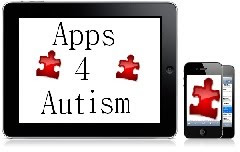Autism has received a lot of national media attention in recent years, largely because the number of children diagnosed has risen sharply. Whether this is due to better diagnostic testing or some yet undiscovered genetic or environmental factor is still to be determined. Either way, its increased prevalence has made it necessary for educators and parents alike to work hard and learn more about autism, from spotting the early signs to the best ways autistic children can learn and thrive. Keeping up with the latest news and information can be a full time job, but social media may prove one fairly effortless way to do so.
We’ve collected 60 Twitter feeds here that will help you to keep up with all the latest news on autism, from charities working to help diagnosed individuals to new discoveries by scientists and researchers — even some support and inspiration from parents raising afflicted children. No matter what drives your interest in autism, you’re bound to find some tweets among these feeds that will help you better understand and work with those who have the condition.
These feeds will ensure you always know the latest in autism research and news.
MORE HERE. Click to see #9 - #60 @ OnlineColleges.Net
- @theautismnews: This feed is a great follow if you want easy access to a wide range of news articles on autism and autism spectrum disorders.
- @autism_research: Check out this Twitter feed to find a great collection of articles that may be of interest to parents and professionals in the autism field.
- @autismbulletin: Make sure you stay in the loop when it comes to autism news by reading this regularly updated feed.
- @TheCoffeeKlatch: Geared towards parents, this feed is an excellent resource for practical articles on living with autism and the latest research being done.
- @asteens: Find some great posts about autism news and more, specifically dealing with the disorder’s impact on teens, through this organization’s feed.
- @autismtalk: Host of Autism Talk Radio, Steven Prussack, keeps this feed loaded with links to his show’s latest recordings.
- @anne_barbano: Anne Barbano hosts a radio show that focuses on autism and other disabilities. Check out her latest topics of discussion here.
- @thinkingautism: Here you’ll find links to some amazingly informative essays written by parents, professionals and those with autism.

